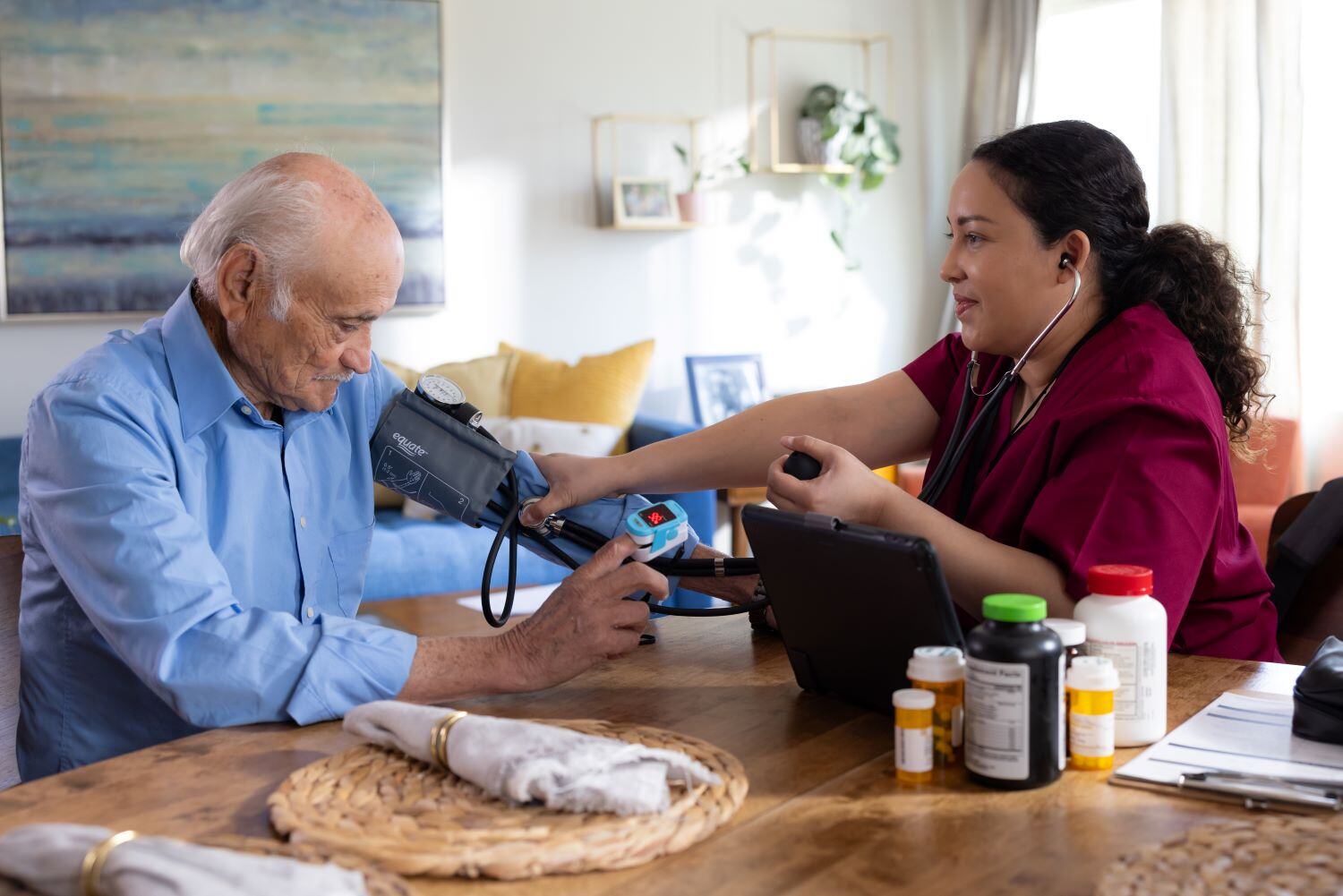
Every June, health care professionals and their organizations recognize Men’s Health Month to encourage men to care for their health and prevent future health conditions. Historically, Men’s Health Month has served as a reminder for men to make an appointment with their health care provider. In this blog, we explain health screenings and the role they play in early disease detection.
What is a health care screening?
Preventative health care screenings are tests and assessments that assess overall health and detect diseases and chronic conditions before symptoms manifest. Screenings have a range of advantages and can help you avoid problems in the future. They help your health care team gauge your overall health and give everyone a better understanding of potential concerns, which often leads to early detection of more serious diseases.*
Why is a health care screening important?
Many individuals avoid seeing a doctor for regular check-ups, often even when they aren’t feeling well. Avoiding routine health care services, with or without symptoms, raises real concerns. Without routine care, doctors cannot detect serious and potentially life-threatening illnesses early, which can allow conditions to progress. For example, the only way to determine if you have high blood pressure is to check it regularly. High blood pressure can lead to a heart attack.
You could have or be at risk for high blood sugar and high cholesterol, but because these conditions may not have any symptoms in the early stages, a screening is the only way to check.**
What are the advantages of having regular health care screenings?
In addition to screening for potential health issues, a screening can help your doctor understand your normal baseline and determine if you are at high risk for a possible concern. For example, if your blood pressure or cholesterol is on the high end of the acceptable range or has changed unexpectedly, your doctor may ask you to schedule a follow-up appointment sooner or encourage you to monitor your blood pressure at home.
Screenings can help encourage a healthy lifestyle by reminding you of beneficial diet and exercise choices or areas for improvement. Most importantly, screenings lead to early detection, which can be life-saving.
Many preventative screenings are available, and scheduling an annual wellness visit is one way to ensure you are taking all the appropriate steps to improve your health. We have identified five screenings that every man should have regularly.
- Blood pressure
High blood pressure can cause many health issues relating to your heart. In the United States, heart disease is the leading cause of death in men. Men with elevated blood pressure or have an increased risk for heart disease and stroke should be tested every year.
- Colonoscopy
A colonoscopy is a routine procedure that helps your doctor check for signs of colon cancer and other types of colon disease. Colon cancer is on the rise, and this screening can lead to early detection and early treatment.
- Diabetes
According to the Centers for Disease Control and Prevention (CDC), men are more likely to get Type 2 diabetes at a lower weight than women. The CDC also reports that nearly 23% of American adults are living with undiagnosed diabetes, and 38% of the U.S. population has prediabetes. It is important to know if you have or are at risk for diabetes.***
- Mental Health
In our recent case study that looked at the behavioral health needs of Medicare Advantage members, we noted that approximately 14% of adults aged 60 and over live with a mental disorder. Mental health conditions (like depression) are often underrecognized and undertreated. A mental health screening can help identify challenges that are treatable.
- Prostate cancer
Prostate cancer is the second leading cause of cancer death in American men. A prostate cancer screening can help your doctor detect the early signs and begin treatment before the cancer has progressed.
Health care screenings are important because they can lead to early detection and treatment. They provide the ultimate ‘head start’ to stay on top of your overall health. Talk with your doctor about the best health care screenings for you. For additional tips on how to talk with your doctor, click here. In addition to health care screenings and seeing your doctor regularly, there are other steps you can take to help you age healthily. Click here for healthy aging tips.
Resources:
*https://www.cdc.gov/pcd/issues/2019/18_0625.htm
**https://www.heart.org/en/health-topics/high-blood-pressure/health-threats-from-high-blood-pressure/how-high-blood-pressure-can-lead-to-a-heart-attack
***https://www.cdc.gov/diabetes/php/data-research/index.html
